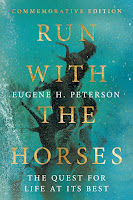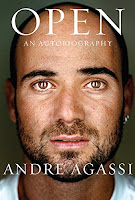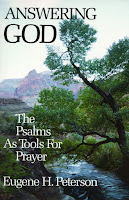I love reading end of the year lists (David Zahl, Brett McCracken, Ross Byrd have been my favorites this year) and I always enjoy creating and sharing them myself. Here are my favorite things from 2024.
Favorite Music of 2024
Discovering and listening to new music has waned for me over the years. I find myself listening to less overall and also listening to more from years past. Manchester Orchestra, Andrew Peterson, John Van Deusen, and Jess Ray were the artists I listened to the most. The last two had new albums this year that were great.
These were my favorite albums of 2024:
- Anthem Sprinter by John Van Deusen - I've come to really enjoy John's unique style and song-writing over the years. This isn't his best album, but it was the one I listened to and enjoyed the most this year. Favorite Songs: Before You Fade Away, Comeback Writer, Trebuchet.
- MATIN: Rest by Jess Ray - Jess has become a staple in our house and on car rides, especially after first seeing her live with Andrew Peterson's Behold the Lamb tour a few years ago. She had a few shorter albums released this year, but this was my favorite. Favorite songs: Morning Song, Lilies & Sparrows, His Eye is on the Sparrow
- When I Was Younger (10 Years Later) by Colony House - This is technically the re-release of an album from 2014, but somehow I missed it back then so I'm counting it. A mixture of fun and sweeping epics. Favorite songs: Waiting for My Time to Come, Won't Give Up, Moving Forward, Lose Control
Favorite TV of 2024
Not much TV again this year, but I loved the latest season (5) of Fargo. I've enjoyed most seasons of Fargo, particularly 1-3, but this last season might be the best. Amazing cast and well-told story. And I agree with David Zahl, who says, "Those closing minutes rank up there with the most profound, well-earned, and well-executed grace notes I’ve seen televised this side of Friday Night Lights."
We also watched the final season of The Crown (season 6). While solid, it was probably my least favorite season in a show that has been one of our favorites in recent years.
Favorite Movies I Watched This Year
I wasn't blown away by any movie this year (outside of re-watching a couple of older movies, Arrival and Magnolia). Typically, I get to the end of the year and have a few I thoroughly enjoyed and several I'm anticipating seeing. That's not really the case this year, but these were the movies from the last two years that I appreciated and enjoyed the most:
- Anatomy of a Fall (2023)
- The Wild Robot (2024)
- Wicked (2024)
- Perfect Days (2024)
Favorite Books I Read This Year
As the previous categories were lower in numbers, this one was higher than normal as I was able to read more this year than any other (55 books). And my love of reading continues to grow, thankfully, due to some really wonderful books out there.
I'm near the end of my multi-year journey through all of Eugene Peterson's books and I'm back in to Wendell Berry (his fiction, essays, & poetry) after taking a few years off. I ending up reading three books about sailing adventures/disasters and as a family, we made it through 2.5 books of Andrew Peterson's great Wingfeather Saga. And one of my favorite discoveries of the year was Libby, where I can borrow books that get delivered straight to my Kindle (where I do about 30% of my reading)! Not sure how I missed that before.
Here are my favorite books that I read this year:
Top 10:
- The Memory of Old Jack by Wendell Berry (1974) - My seventh of Berry's Port William fictional series, and probably my second favorite behind Jayber Crow. Through his writing, Berry helps reshape my imagination by depicting the beauty of being rooted to a place, interconnected in community, along with all the pain and joy of life (brief review)
- Endurance by Alfred Lansing (1959) - About the incredible voyage of Ernest Shackleton and his men trying to reach the South Pole in the early 1900s, this is now one of my favorite narrative non-fiction books. I was mesmerized by the perseverance of these men in the face of such hardship. And I loved the leadership of Shackleton, whose confidence was said to "set men's souls on fire." (brief review)
- The Boys in the Boat by Daniel James Brown (2013) - I never saw the movie and I'm not sure I want to now. This book was so good on it's own. I've thought about it a lot since reading it early this year, about the beauty and pain of rowing, about the camaraderie, synchronization, and trust needed to row with excellence, about the personal adversity many of these young men went through, and about the incredible feat they all pulled off together.
- Faith, Hope, and Carnage by Nick Cave (2022) - Before this book, I had little knowledge of Nick Cave. And in trying to listen to a few of his songs early on, I discovered his voice and musical style were not really for me. However, Nick's thoughts and story in this book, which is a series of interviews between Nick and journalist Sean O'Hagan, changed all that. The Red Hand Files is now one of my favorite newsletters and I've loved listening to his 2019 album Ghosteen, the album he wrote shortly after his son Arthur tragically died. Nick has profound thoughts about grief's role in our lives, how pain can draw us to God, the transcendent power of music, and the wonder and preciousness of life.
- The Anxious Generation by Jonathan Haidt (2024) - After The Righteous Mind and The Coddling of the American Mind, this is my third Haidt book and I consider them all must reads. This one is a must read for parents of young kids. Here, he's discussing how Gen Z has become the anxious generation because of how phones and social media dominated their childhood. I appreciate how he insightfully diagnoses the problem, but doesn't leave the reader without hope as he provides four clear reforms we can collectively take to reverse the trend. And I love that how this book is tangibly making any impact around the world.
- What Are People For? by Wendell Berry (1990) - An excellent collection of essays by one of my favorite writers. The strongest essays are in the last half of the book: Economy and Pleasure, The Pleasures of Eating, The Work of Local Culture, Why I am not Going to Buy a Computer, and Feminism, The Body, and the Machine. (brief review)
- Let Your Life Speak by Parker Palmer (2000) - A great, short book on understanding our vocation, what we were meant to bring to the world. I love how Palmer calls out the difference between our ego, that looks for identity and vocation externally, and our true self, a deep identity rooted in the image of God within each of us. Instead of asking ‘What ought I to do with my life?, he encourages us to ask 'Who am I?'. This deep self-understanding can lead to a fuller life for yourself and others, echoing what Frederick Buechner says about vocation, "the place where your deep gladness meets the world’s deep need."
- Practicing the Way by John Mark Comer (2024) - I think I slightly preferred Comer’s previous two books (Ruthless Elimination of Hurry, Live No Lies), but there was a lot of good stuff here. Great thoughts on how spiritual formation happens and the importance of paying attention to the way of Jesus’s life. I think what I’ll remember most is how Comer defines contemplation as looking at God, looking at you, in love.
- Empire of the Summer Moon by S.C. Gwynne (2010) - After re-reading Lonesome Dove this year, this was a great read to better understand the context for the creation of the Texas Rangers and why the Comanches were so feared. This book does a good job of describing the complicated history of Americans displacing natives from their land out west while also showing the brutality that the Comanches displayed in pushing back against this effort, in large part due to their mastery of being able to fight while on horseback.
- How Far to the Promised Land by Esau McCaulley (2023) - beautifully written and moving memoir.
Next 10:
Favorite Books I Re-read This Year
- Jayber Crow by Wendell Berry (2000) - I think re-reading this for the 2nd time cemented this as my favorite book ever. I love the world and characters Berry creates here. It's hard to read this book and not want to give up on the hurriedness of our technology-saturated lives, to be immersed in a more restful existence, where community and the land hold more value, and where "getting ahead" is rarely considered.
- Lonesome Dove by Larry McMurtry (1985) - This one is also of my favorite books. McMurtry's writing style is simple yet he's created characters here that are relatable, flawed, and have great depth. It's a remarkable book about friendship, relational longing, and being on mission together.
- Pilgrim at Tinker Creek by Annie Dillard (1974) - I appreciated this more the 2nd time through, but to quote an NYT review, "I honestly do not know what she is talking about at...times." I do love how she marvels at the world around her and encourages the reader to pay attention to the beauty, intricacy, and extravagance of the world around us.



















